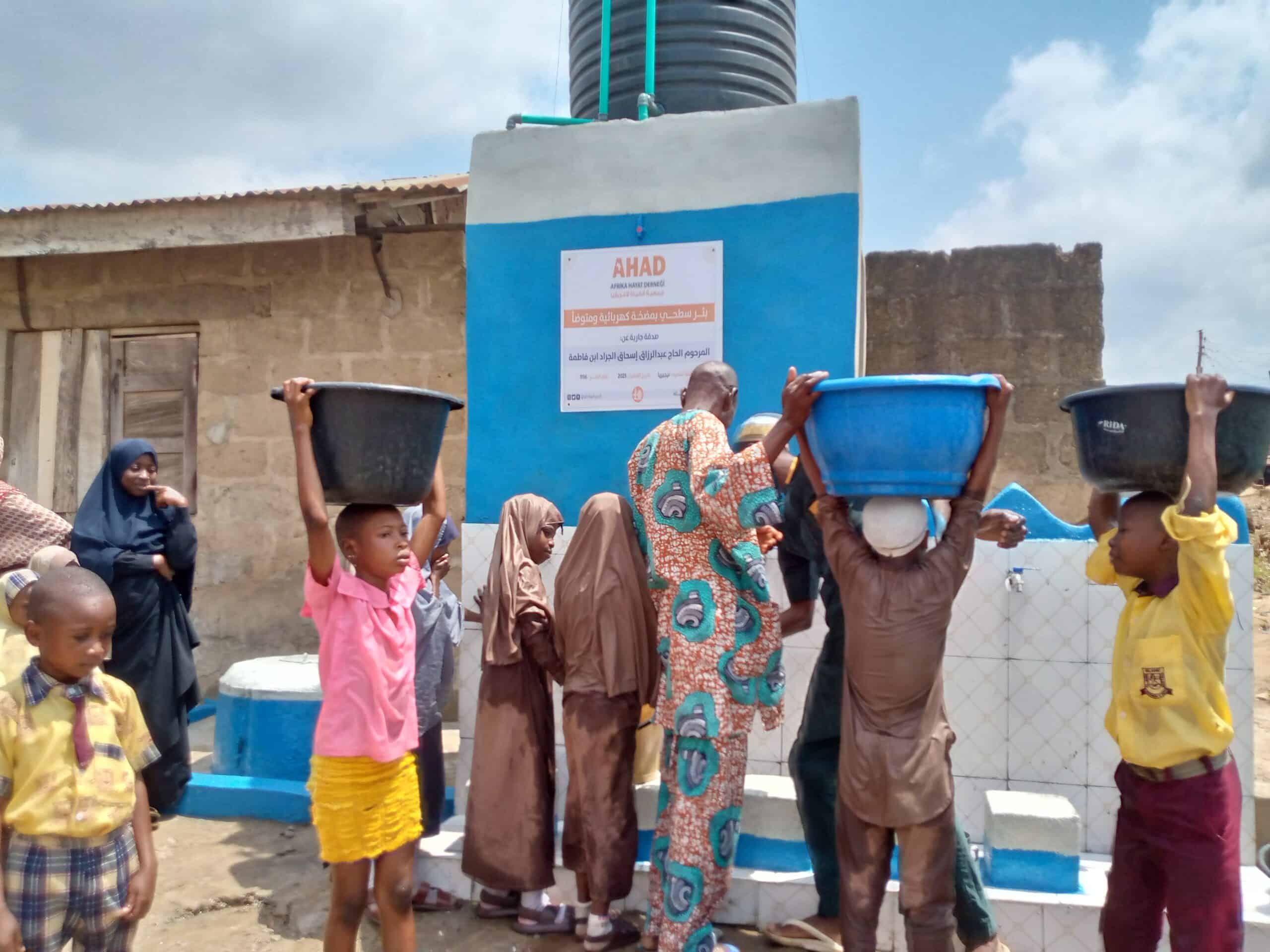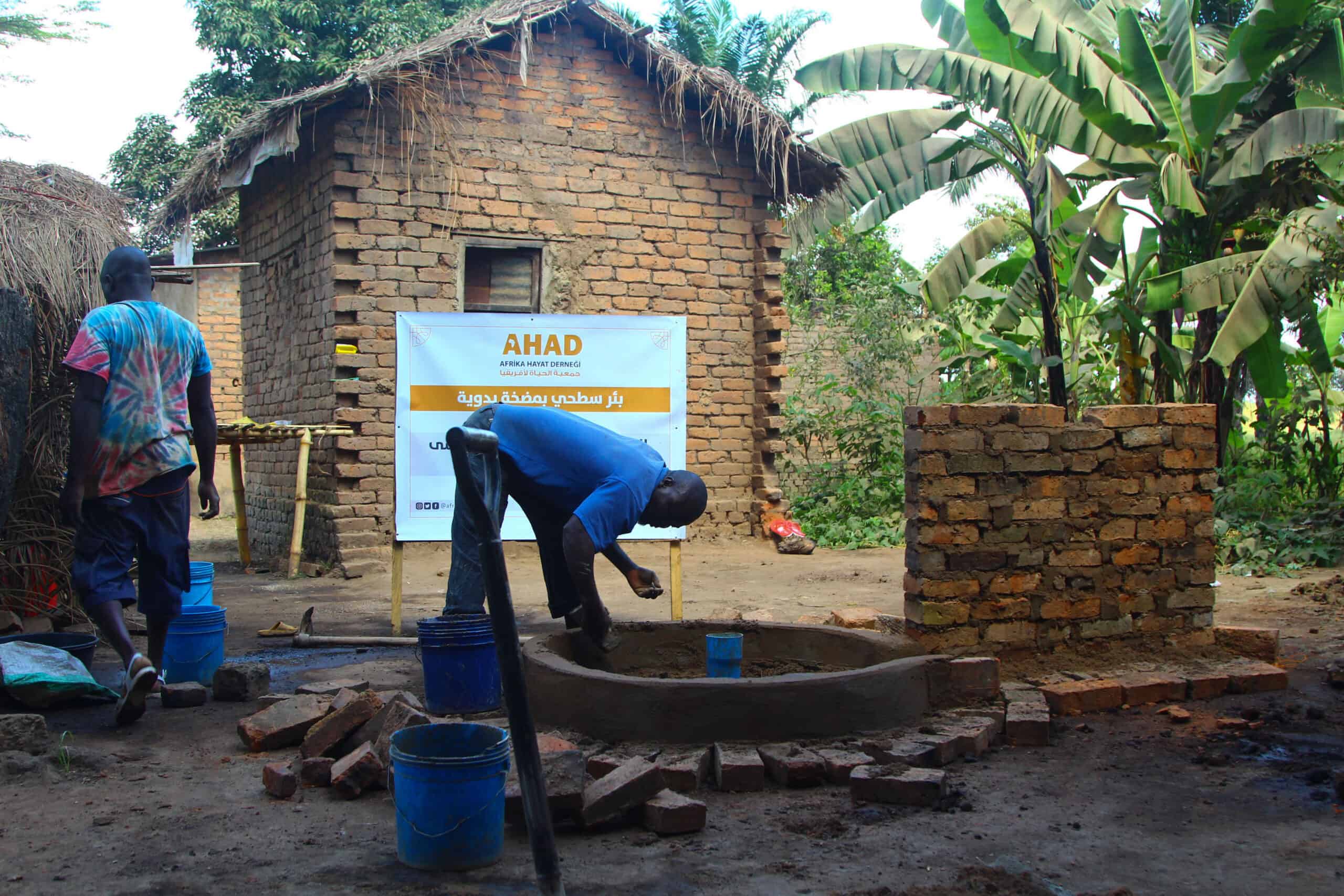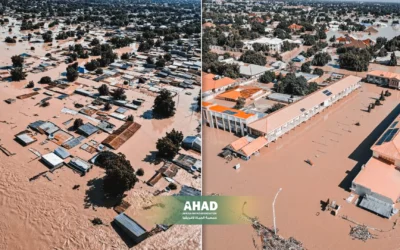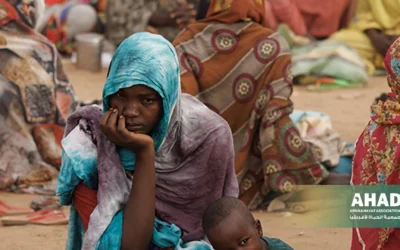Water shortages in Ghana are one of the most prominent public health challenges in the country. Much of the Ghanaian population depends on contaminated water, which is available in limited quantities for personal use and public hygiene. These conditions lead to high rates of waterborne diseases and diseases related to water deficiency.
Statistics and government data indicate that Ghana is suffering from the spread of diseases such as diarrhea, typhoid fever and cholera, which the lack of water contributes to the spread. The use of contaminated water sources for drinking and cooking may worsen the state of health of individuals and increase the incidence of gastrointestinal diseases.
In addition, the lack of water affects the ability of hospitals and health facilities to provide adequate medical care, which leads to the spread of diseases and aggravation of patients ‘ conditions.
We must recognize that an adequate supply of clean and potable water is essential to maintain the health of the population of Ghana. It is important to raise awareness of the importance of using water effectively and applying strong hygiene standards to reduce the spread of aquatic diseases.
Widespread diseases due to lack of water
Ghana is experiencing the spread of many diseases due to lack of water. Government statistics indicate a high incidence of waterborne diseases in the country. This is due to the use by Ghanaians of contaminated and unclean water for personal use and cooking.
Diarrhea is one of the most prominent diseases caused by lack of water, and it seriously affects the health of the population of Ghana. Typhoid fever and cholera are also common diseases in the country, and their spread is increasing due to water shortages and the presence of polluted water sources.
Besides, lack of water also worsens digestive health conditions, as individuals suffer from digestive problems and diseases such as diarrhea and vomiting as a result of using unclean water.
In general, the lack of water is one of the factors significantly influencing the spread of diseases in Ghana. An adequate supply of clean water and the application of strict hygiene standards are therefore essential to reduce this problem and protect the health of the Ghanaian population.
Preventive measures to deal with water shortage
Preventive measures form an important basis for dealing with water shortages in Ghana and protecting the health of the population. The government and the relevant institutions should take immediate action to develop and strengthen the country’s water supply. In addition, communities and individuals should take the following actions:
Awareness and education: people should be made aware of the importance of using clean water and keeping water sources clean.
Water conservation: the use of water conservation techniques such as rainwater collection and reuse of washing water should be encouraged.
Desalination: desalination options should be explored as a way to increase water supply in Ghana.
Water quality monitoring: periodic water quality checks should be carried out to ensure that it is free of harmful pollutants and parasites.
Training of water sector workers: the necessary training and education should be provided to water sector workers to ensure effective and smooth management of water supply networks.
Investment in research and innovation: scientific research and technical innovations should be supported to improve the use, management and distribution of water.
By taking these measures, the prevalence of water shortage diseases can be reduced and the health of the Ghanaian population in general can be improved.
Effects of water deficiency on the diet
Water is an essential part for the growth and development of plants, and therefore plays a prominent role in ensuring the availability of healthy food. In the case of water shortages in Ghana, the diet suffers a significant negative impact. With a reduced water supply, it may be difficult to grow crops and fruit trees.
Lack of water can lead to a shortage of agricultural crops and a deterioration in their quality. The production of foodstuffs such as cereals, vegetables and fruits may also decrease. This leads to a rise in food prices and a decrease in its availability. Moreover, nutrition in general can be affected by a lack of natural liquids such as milk and soups.
Along with this, the use of chemical preparations and fertilizers may increase in conditions of constant drought. This is considered a threat to public health, as it can lead to contamination of soil and water, causing the spread of harmful chemicals in food.
There is no doubt that the lack of water in Ghana is a major challenge to the diet and food supply. Therefore, it is necessary to develop measures and solutions to improve water supply and ensure the availability of healthy and varied food for all residents of Ghana.
The importance of improving water supply in Ghana
Improving water supply in Ghana is of great importance in ensuring food stability and public health. The lack of water negatively affects the ability to grow and produce food, which leads to a decrease in the availability of food and an increase in its prices.
Water is essential for the growth of agricultural crops and maintaining their quality, as it plays a major role in providing domestication for animals, plants and trees. Without sufficient water, the diet may develop an acute infrastructural deficiency that negatively affects the health of individuals.
In addition, lack of water increases the risk of the spread of diseases and infections. The chances of epidemics and poisonings being transmitted through contaminated water may increase, causing outbreaks of infectious diseases, such as diarrhea and aquatic parasites.
Therefore, it is essential that Ghana pays great attention to improving water supply and raising awareness of the importance of its effective and correct use. The government and the competent authorities should take practical steps to increase desalination capacity and manage water resources efficiently, as well as encourage the cultivation of crops suitable for drought conditions. These measures will contribute to strengthening the health of the population of Ghana and ensure the stability of the diet.
Possible solutions to overcome water shortage in Ghana
Ghana faces great challenges regarding water shortage, but there are possible solutions to overcome this problem. One of the possible solutions is to increase the desalination capacity of the country. Desalination technologies can be used to convert brackish or polluted water into water suitable for agricultural use and drinking. By increasing the number and capacity of desalination plants, additional volumes of purified water can be supplied.
Also, efficient management of Water Resources should be promoted. Collecting, storing and managing rain in effective ways is one of the most prominent ways to benefit from water. In addition, the use of smart irrigation methods and sustainable agricultural technologies should be encouraged to provide effective water use in agriculture.
In addition, a better balance between demand and supply can be achieved by promoting rational use of water and educating the public about the importance of water conservation. Water conservation laws should be tightened and awareness campaigns promoted to encourage individuals and institutions to take action to reduce water consumption.
With investment in robust water distribution and management infrastructure projects, there will be greater opportunities to improve Ghana’s water supply. The government should pay great attention to this issue and introduce radical adjustments in the water sector . By taking these solutions, Ghana will be able to overcome the water shortage and ensure a stable water supply for its population in the future.
AHAD is working to solve water problems in Ghana and improve the situation
Related articles:
Education in Nigeria






